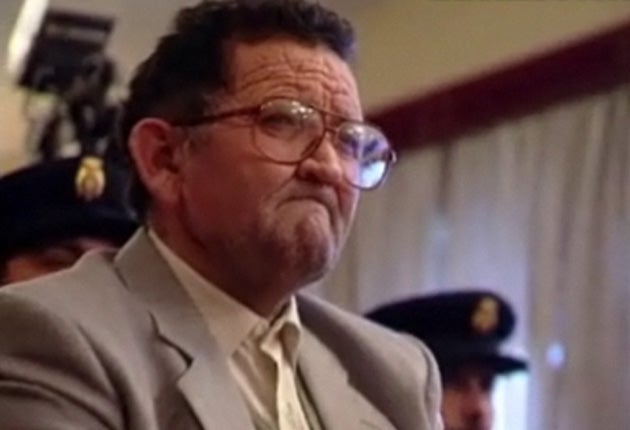Spain relives notorious massacre after shotgun killer hangs himself in cell

Spain has relived one of its most infamous mass murders, with the death of one of the sheep farmers behind a shooting spree which left nine people dead in 1990.
The killings happened as the country was looking forward to showcasing the 1992 Barcelona Olympics and the World Expo in Seville. But the small-town tragedy, in which two brothers ran amok one summer afternoon, smacked of something out of Federico Garcia Lorca's rural revenge play Blood Wedding.
The massacre in the southwest hamlet of Puerto Hurraco, near Badajoz, became an embarrassing symbol of the most bloody veins of the country's history, what Spaniards refer to as "Black Spain". It was so gripping that in 2004 Spanish director Carlos Saura turned it into a movie, The Seventh Day.
One of the brothers, Antonio Izquierdo, 73, hanged himself with knotted bed sheets in his Badajoz prison cell on Sunday. He had just served 20 years of a 344-year sentence for the nine murders, and he had recently learned that he faced another five. His brother Emilio, also convicted of murder, died behind bars of a heart attack in 2006. Their sisters, who were acquitted of helping to plot the massacre, died within a year of each other at a psychiatric hospital, where they lived for 15 years.
The root of the blood bath? A decades-old land dispute between the Izquierdo family and their neighbours in the 140-person hamlet of Puerto Hurraco, the Cabanillas. That dispute blossomed into an outright feud when the mother of Antonio and Emilio Izquierdo died in a suspicious fire at her home. The fire's cause was never determined, but the brothers blamed the Cabanillas family. The massacre, in which two Cabanillas children were killed, was their revenge.
First, the brothers fired their shot guns in the village's only artery, Carrera de Puerto Hurraco, where 12-year-old Encarna Cabanillas and 14-year-old Antonia Cabanillas, were playing. A third sister, Maria del Carmen, narrowly escaped. She left the girls' game just a minute before the shooting. Then the brothers took aim indiscriminately at the elderly villagers, who sat on folding chairs along the street, gossiping and enjoying the scant afternoon breeze. The Izquierdo sisters, later diagnosed with paranoid delusions, were reportedly convinced that the entire town had sided with the Cabanillas family in the feud.
A local reporter, Jose Antonio Hernandez, recalled the surreal scene after the shooting: "Every family with their dead: that's what Puerto Hurraco was that afternoon," he wrote in Monday's El Pais.
"From one doorway you could see two coffins, smaller than the others, and white. Inside, two angelical girls, with the lids closed, incessantly watched by their pained mother, whose gaze seemed to say that the omen had been fulfilled."
A judge ruled out an insanity plea for the two brothers based on their professional success as sheep herders and land owners – and their bank account containing €60,000.
The Izquierdo brothers reportedly refused to repent for their vendetta while in jail. According to the local Badajoz newspaper Hoy, Antonio Izquierdo attended his brother's funeral handcuffed and limping, and whispered to the grave: "Brother, you go to heaven at age 74, but you go with the satisfaction of knowing that your mother was avenged."
Even before the 1990 bloodbath, the feud already claimed one life in Puerto Hurraco. A third Izquierdo brother, Jeronimo, beat to death the uncle of the girls' uncle. That brother was sent to a psychiatric hospital, where he died nine days later.
The last time Spain relived the Puerto Hurraco massacre was in 2004, when Mr Saura's film was released. The Izquierdo family opposed the production, as did the surviving Cabanillas sister. The regional government of Extremadura feared the film would destroy the area's image as a bucolic rural haven. Villagers, meanwhile, have braced themselves for the return of morbidly curious tourists who flocked to the hamlet after the crime.
Subscribe to Independent Premium to bookmark this article
Want to bookmark your favourite articles and stories to read or reference later? Start your Independent Premium subscription today.

Join our commenting forum
Join thought-provoking conversations, follow other Independent readers and see their replies